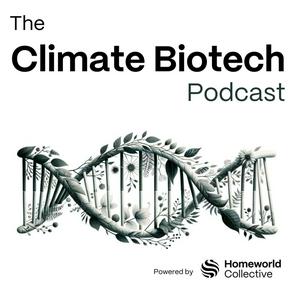In this special episode, we sit down with Shuguang Zhang, Head of the Laboratory of Molecular Architecture in the MIT Media Lab and a mentor to countless biotech explorers. His personal story has at least one literal "1 in 100 Million" moment and demonstrates the power of curiosity, kindness, and always asking questions.
We trace how Shuguang's stubbornness to pursue questions long after others give up has taken him around the world and reshaped biology. "Why is some DNA left-handed?" is a question he couldn't stop asking as a young man in China. It led him to work with one of his heroes, Alexander Rich at MIT, where he discovered zoutin (from the Chinese word for left, 左, zuo), the critical protein for mysterious Z-DNA. When he purified this new protein, he became fascinated by how it self-assembled into structures visible to the naked eye—a discovery that became PuraMatrix, now used in wound healing worldwide, and sparked generations of curiosity about self-assembling peptides.
Similarly, wondering why there are both hydrophobic and hydrophilic alpha helices led to the QTY code: a beautifully simple method to convert any membrane protein into a water-soluble form. By swapping hydrophobic residues for polar look-alikes (Q, T, and Y) without breaking geometry, this unlocks dense high-signal sensors, "molecular trap" therapeutics targeting cancer metastasis, and a fresh way to treat receptors as modular parts rather than fragile mysteries.
The pattern repeats with S-layer proteins: nature's two-dimensional crystalline lattices that orient engineered receptors 100% upright at nanometer precision. Combined with QTY-solubilized proteins, these create clean bioelectronic interfaces, ultrasensitive arrays, and new possibilities for separations and chemical monitoring.
We widen the lens to climate: industrial-scale kelp systems for carbon capture and feed, biotech routes for ocean-based materials, and practical paths to planetary solutions that borrow from biology's atomic precision and self-assembly. Kelp's exceptional photosynthetic efficiency and rapid growth make it a promising system that biotechnology could enhance through genetic engineering.
Threaded through it all are lessons from mentors like Francis Crick ("ask big questions, you get bigger answers") and Alexander Rich ("it's equally important to know what not to do"). As Shuguang puts it: "In doing science, we see a lot of things, but don't observe. To observe is to pay attention." We also talk frankly about funding setbacks, debt, persistence, and the role of AI: powerful at pattern completion, weak at original curiosity.
If you care about proteins, materials, sensors, climate biotech, or simply how a life of questioning can bend reality, this conversation is a field guide.
If the story resonates, subscribe, share with a friend, and leave a review with the one question this episode inspired you to ask next.
Read Shuguang's powerful essay "Life Has Ups and Downs, but Always Ask Questions": https://www.researchgate.net/publication/363521718_Life_Has_Ups_and_Downs_but_Always_Ask_Questions
Send a text


